What Age Should I Enroll My Student in Music Classes?
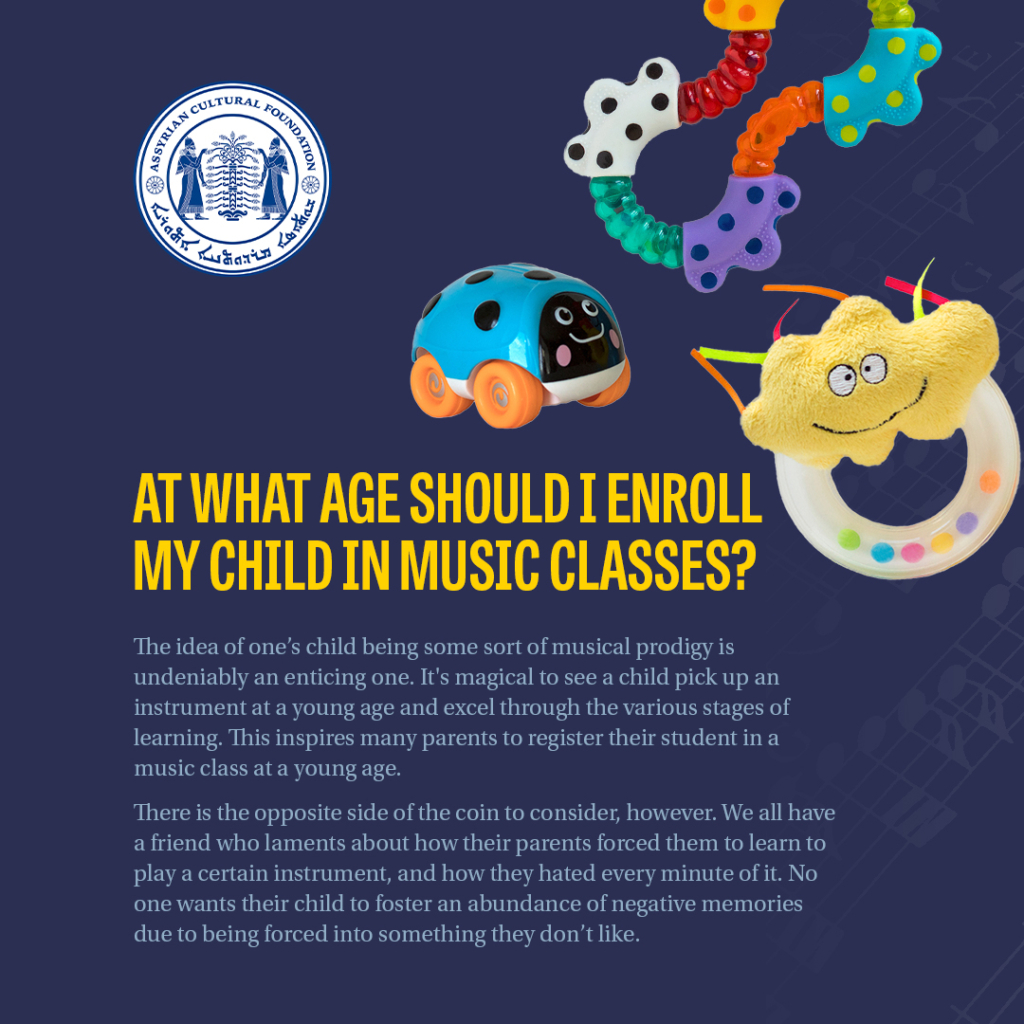
The idea of one’s child being some sort of musical prodigy is undeniably an enticing one. It’s magical to see a child pick up an instrument at a young age and excel through the various stages of learning. This inspires many parents to register their students in a music class at a young age.
There is the opposite side of the coin to consider, however. We all have a friend who laments about how their parents forced them to learn to play a certain instrument, and how they hated every minute of it. No one wants their child to foster an abundance of negative memories due to being forced into something they don’t like.
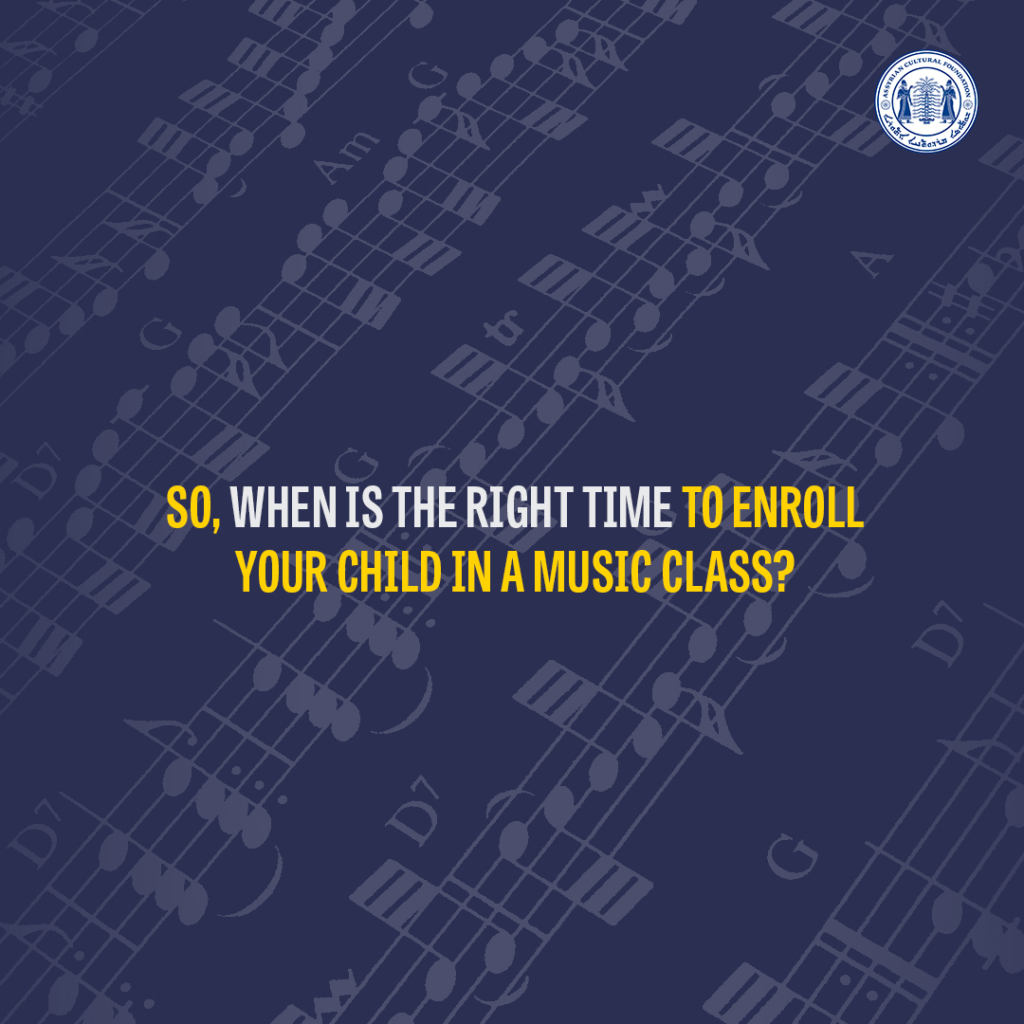
So, when is the right time to enroll your child in a music class?
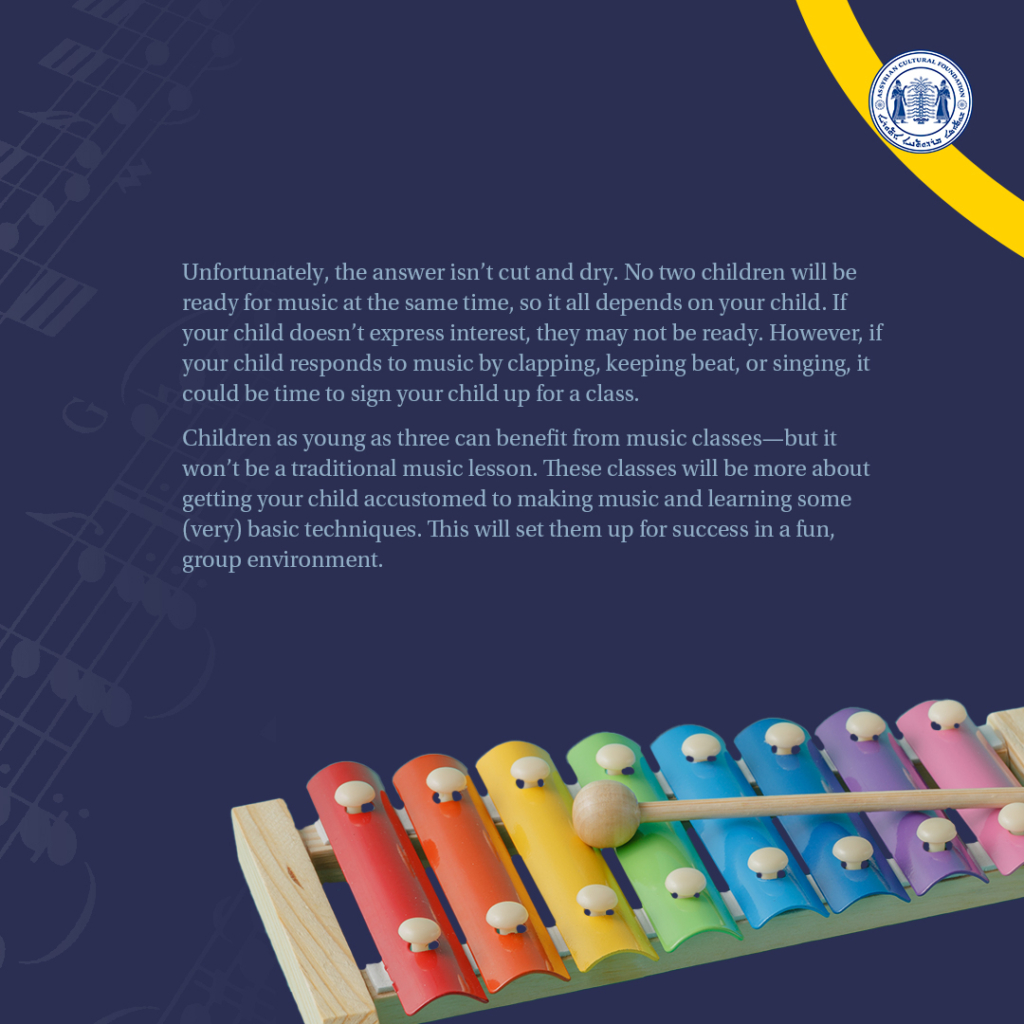
Unfortunately, the answer isn’t cut and dry. No two children will be ready for music at the same time, so it all depends on your child. If your child doesn’t express interest, they may not be ready. However, if your child responds to music by clapping, keeping beat, or singing, it could be time to sign your child up for a class.
Children as young as three can benefit from music classes—but it won’t be a traditional music lesson. These classes will be more about getting your child accustomed to making music and learning some (very) basic techniques. This will set them up for success in a fun, group environment.
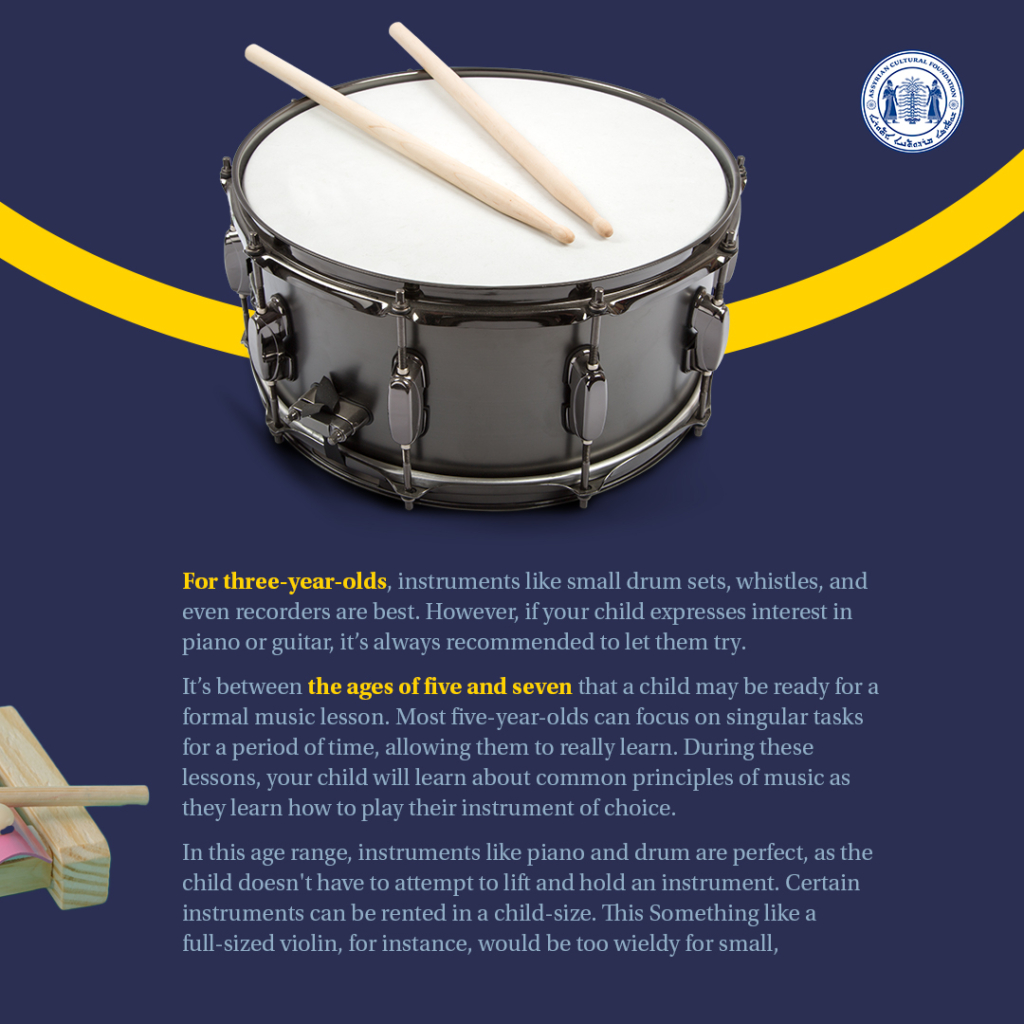
For three-year-olds, instruments like small drum sets, whistles, and even recorders are best. However, if your child expresses interest in piano or guitar, it’s always recommended to let them try.
It’s between the ages of five and seven that a child may be ready for a formal music lesson. Most five-year-olds can focus on singular tasks for a period of time, allowing them to really learn. During these lessons, your child will learn about common principles of music as they learn how to play their instrument of choice.
In this age range, instruments like piano and drum are perfect, as the child doesn’t have to attempt to lift and hold an instrument. Certain instruments can be rented in a child-size. This Something like a full-sized violin, for instance, would be too wieldy for small, six-year-old hands.
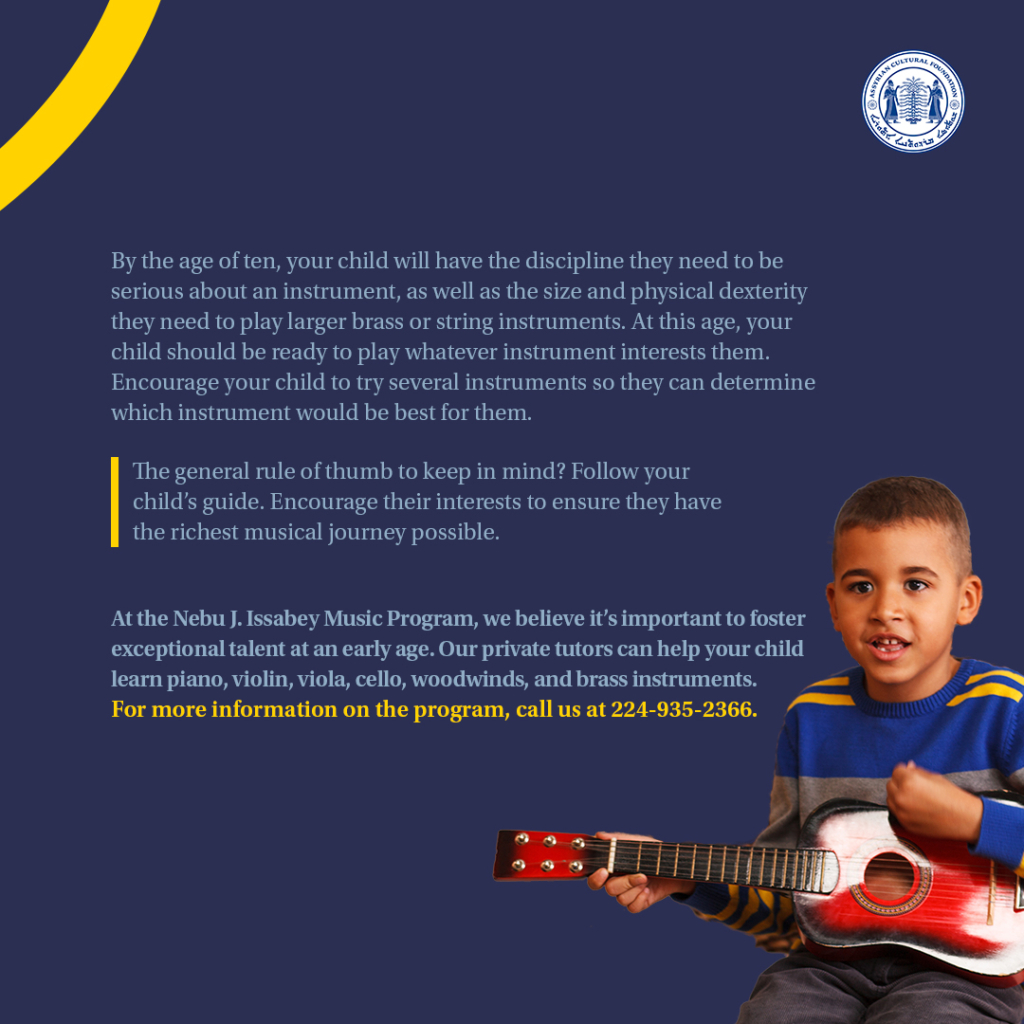
By the age of ten, your child will have the discipline they need to be serious about an instrument, as well as the size and physical dexterity they need to play larger brass or string instruments. At this age, your child should be ready to play whatever instrument interests them. Encourage your child to try several instruments so they can determine which instrument would be best for them.
The general rule of thumb to keep in mind? Follow your child’s guide. Encourage their interests to ensure they have the richest musical journey possible.
At the Nebu J. Issabey Music Program, we believe it’s important to foster exceptional talent at an early age. Our private tutors can help your child learn piano, violin, viola, cello, woodwinds, and brass instruments. For more information on the program, call us at 224-935-2366.
